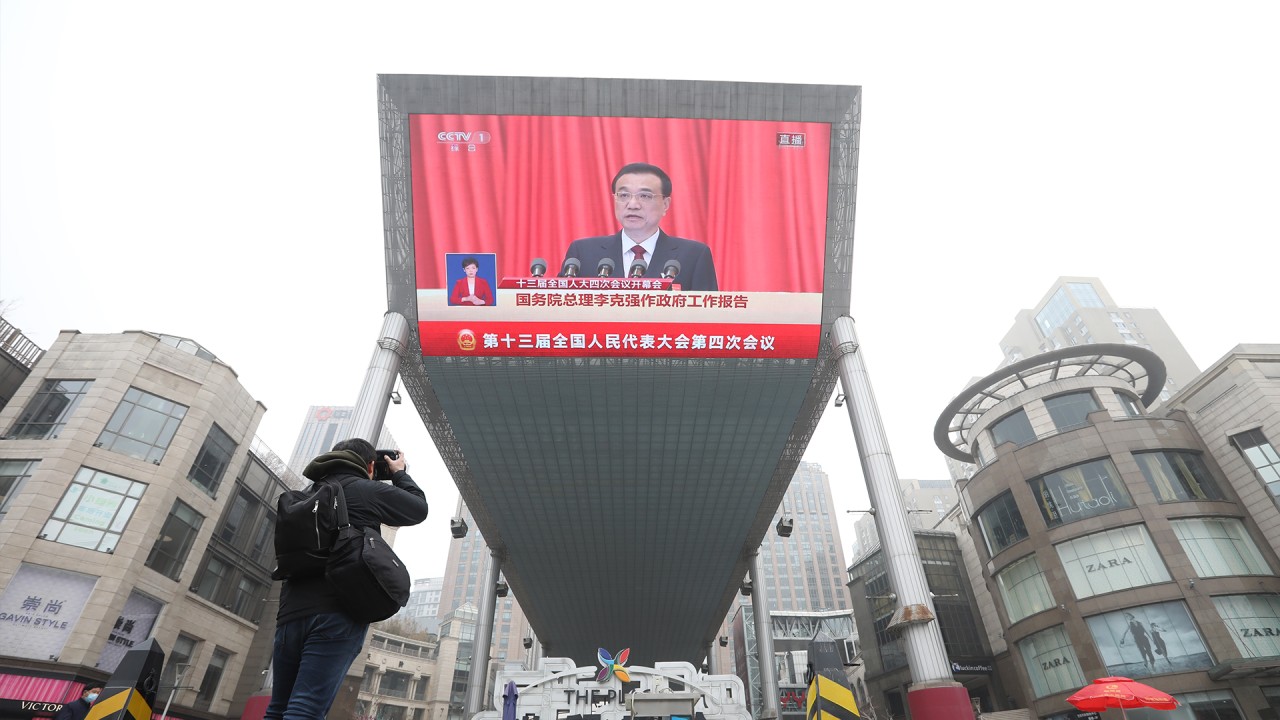
Stock bears grip China markets as slump in liquor, tech stocks show Tesla, bond traders are not alone in their pain
- Benchmark index members in Shanghai, Shenzhen and Hong Kong have lost US$1.2 trillion of market value in sell-off from this year’s highest points
- Hang Seng Tech Index has dropped 21 per cent, putting tech bellwethers in a bear market, while its Shenzhen peer, the ChiNext, tumbled 17 per cent
“There’s still downside room after the recent sell-off on these pricey, concentrated bets, and there’s no risk appetite for the likes of baijiu stocks,” said Zhang Zhigang, an analyst at Guorong Securities. “Banking and insurance stocks offer safer margins and they stand out in terms of allocation values now.”
Kweichow Moutai, the world’s most valuable distiller, has declined 21.6 per cent from an all-time high of 2,627.88 yuan on February 18, according to Bloomberg data. Its market value shrank by US$106.3 billion over 12 days, equivalent to the size of New Zealand’s stock market.
The distiller trades at 57 times earnings against an 11 per cent earnings growth projected by analysts. Its former chairman Li Baofang last year said it was not realistic or rational for the company to constantly achieve a 30 per cent annual growth rate.
Local rivals Wuliangye Yibin and Luzhou Laojiao have not been spared the dumping by investors, having lost 25.4 per cent and 33.7 per cent from their perch.

03:56
China’s 2021 National People’s Congress opens with Hong Kong’s electoral system on the agenda
The ChiNext in Shenzhen and the Hang Seng Tech Index lost 17.4 per cent and 21.1 per cent, with the ATM trio of Alibaba Group Holding, Tencent Holdings and Meituan logging 26.6, 12.4 and 26.7 pe recent losses from their all-time highs.
As the Covid-19 pandemic subsides, China’s stimulus has peaked and will roll over significantly in 2021, according to analysts at BCA Research. The economy faces a triple tightening in monetary and fiscal conditions, regulatory focus on lenders and scrutiny of the property market.
“The popular bets are now at the valuation ceiling and the pressure on the correction is building up,” said Cai Fangyuan, an analyst at China Galaxy. “Funds will continue to shift into the cyclical stocks and those with reasonable valuations. Matching earnings growth with market prices will be a key factor this year.”
A gauge of the 40 mainland-listed commercial lenders jumped 2.3 per cent last week. Even after the gains, they are still bargains among all the industry groups with an average of 6.7 times earnings multiple and a 30 per cent discount to the book value, according to data provider Shanghai DZH.
Another possible catalyst for banks is the sustained recovery in economic growth, which will fuel demand for loans and widen net interest margin, according to Xiong Ying, an analyst at BOC International.
“Big banks and some city and rural banks with geographical advantages will benefit most as they are better at controlling the cost of deposits.”
Chinese banks have been consistent laggards after years of a government-led drive to reduce leverage and as more companies turn to stock and bond markets for cheaper financing.
The gauge of Chinese banks has underperformed the benchmark for the past two years. This year, the tables have turned as lenders advanced 10 per cent versus a 1 per cent gain in the Shanghai Composite Index.
With growth in the US and global economy expected to exceed 6 per cent this year, banks as a proxy will probably log more gains, according to Pictet Asset Management.
“Equity investors should expect to see a change in the pattern of return across countries, with cyclical value stocks likely to lead the market higher,” said Luca Paolini, chief strategist at the Swiss money manager. “In an environment of strong growth and gradually rising bond yields, financial stocks should be able to increase their earnings.”

